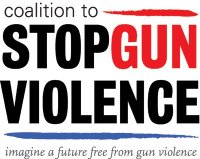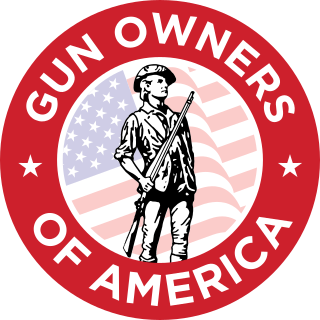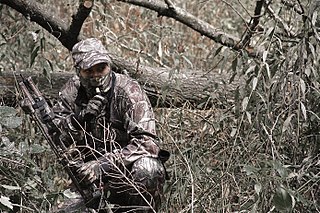Related Research Articles

Hunting is the practice of seeking, pursuing and capturing or killing wildlife or feral animals. The most common reasons for humans to hunt are to harvest useful animal products, for recreation/taxidermy, to remove predators dangerous to humans or domestic animals, to eliminate pests and nuisance animals that damage crops/livestock/poultry or spread diseases, for trade/tourism, or for ecological conservation against overpopulation and invasive species.

Rodeo is a competitive equestrian sport that arose out of the working practices of cattle herding in Spain and Mexico, expanding throughout the Americas and to other nations. It was based on the skills required of the working vaqueros and later, cowboys, in what today is the western United States, western Canada, and northern Mexico. Today, it is a sporting event that involves horses and other livestock, designed to test the skill and speed of the cowboys and cowgirls. American-style professional rodeos generally comprise the following events: tie-down roping, team roping, steer wrestling, saddle bronc riding, bareback bronc riding, bull riding and barrel racing. The events are divided into two basic categories: the rough stock events and the timed events. Depending on sanctioning organization and region, other events such as breakaway roping, goat tying, and pole bending may also be a part of some rodeos. According to Encyclopedia Britannica, the "worlds first public cowboy contest" was held on July 4, 1883 in, Pecos Texas between cattle driver Trav Windham and roper Morg Livingston.

Charles Michael Thompson is an American politician serving as the U.S. Representative for California's 5th congressional district since 1999. The district, in the outer northern portion of the San Francisco Bay Area, includes all of Napa County and parts of Contra Costa, Lake, Solano, and Sonoma Counties. Thompson chairs the House Gun Violence Prevention Task Force. He is a member of the Democratic Party.

The Coalition to Stop Gun Violence (CSGV) and the Educational Fund to Stop Gun Violence, its sister organization, are two parts of a national, non-profit gun control advocacy organization that is opposed to gun violence. Since 1974, it has supported reduction in American gun violence via education and legislation.

Gun Owners of America (GOA) is a gun rights organization in the United States. It makes efforts to differentiate itself from the larger National Rifle Association (NRA) and has publicly criticized the NRA on multiple occasions for what it considers to be compromising on gun rights.

Cruelty to animals, also called animal abuse, animal neglect or animal cruelty, is the infliction by omission (neglect) or by commission by humans of suffering or harm upon any non-human animal. More narrowly, it can be the causing of harm or suffering for specific achievement, such as killing animals for entertainment; cruelty to animals sometimes encompasses inflicting harm or suffering as an end in itself, defined as zoosadism.
A canned hunt is a trophy hunt which is not "fair chase", typically by having game animals kept in a confined area such as in a fenced ranch to prevent the animals' escape and make tracking easier for the hunter, in order to increase the likelihood of the hunter obtaining a kill. The term has been used for driven grouse shooting, in which large areas of Britain are farmed for red grouse. According to WordNet, a canned hunt is a "hunt for animals that have been raised on game ranches until they are mature enough to be killed for trophy collections."
Devocalization is a surgical procedure performed on dogs and cats, where tissue is removed from the animal's vocal cords to permanently reduce the volume of its vocalizations.
Overpopulation in domestic pets is the surplus of pets, such as cats, dogs, and exotic animals. In the United States, six to eight million animals are brought to shelters each year, of which an estimated three to four million are subsequently euthanized, including 2.7 million considered healthy and adoptable. Euthanasia numbers have declined since the 1970s, when U.S. shelters euthanized an estimated 12 to 20 million animals. Most humane societies, animal shelters and rescue groups urge animal caregivers to have their animals spayed or neutered to prevent the births of unwanted and accidental litters that could contribute to this dynamic.

Bowhunting is the practice of hunting game animals by archery. Many indigenous peoples have employed the technique as their primary hunting method for thousands of years, and it has survived into contemporary use for sport and hunting.

The Humane Society of the United States (HSUS) is an American nonprofit organization that focuses on animal welfare and opposes animal-related cruelties of national scope. It uses strategies that are beyond the abilities of local organizations. It works on issues including companion animals, wildlife, farm animals, horses and other equines, and animals used in research, testing and education. As of 2001, the group's major campaigns targeted factory farming, animal blood sports, the fur trade, puppy mills, and wildlife abuse.

Safari Club International (SCI) is a US organization composed of hunters dedicated to protecting the freedom to hunt. SCI has more than 50,000 members and 180 local chapters. SCI members agree to abide by the organization's code of ethics, which includes making a positive contribution to wildlife and ecosystems, complying with game laws, and assisting game and fish officers.

Opposition to hunting is espoused by people or groups who object to the practice of hunting, often seeking anti-hunting legislation and sometimes taking on acts of civil disobedience, such as hunt sabotage. Anti-hunting laws, such as the English Hunting Act 2004, are generally distinguishable from conservation legislation like the American Marine Mammal Protection Act by whether they seek to reduce or prevent hunting for perceived cruelty-related reasons or to regulate hunting for conservation, although the boundaries of distinction are sometimes blurred in specific laws, for example when endangered animals are hunted.

The National Shooting Sports Foundation (NSSF) is an American national trade association for the firearms industry that is based in Newtown, Connecticut. Formed in 1961, the organization has more than 8,000 members: firearms manufacturers, distributors, retailers, shooting ranges, sportsmen's clubs and media.

Wayne Pacelle is one of the leading contemporary animal advocates, having founded or led a set of major animal rights organizations, negotiated agreements on animal rights with major American companies, and helped conceive of and pass statewide ballot measures and federal laws. He is also a two-time New York Times best-selling author.
Animals used by laboratories for testing purposes are largely supplied by dealers who specialize in selling them to universities, medical and veterinary schools, and companies that provide contract animal-testing services. It is comparatively rare that animals are procured from sources other than specialized dealers, as this poses the threat of introducing disease into a colony and confounding any data collected. However, suppliers of laboratory animals may include breeders who supply purpose-bred animals, businesses that trade in wild animals, and dealers who supply animals sourced from pounds, auctions, and newspaper ads. Animal shelters may also supply the laboratories directly. Some animal dealers, termed Class B dealers, have been reported to engage in kidnapping pets from residences or illegally trapping strays, a practice dubbed as bunching.
The Universal Declaration on Animal Welfare (UDAW) is a proposed inter-governmental agreement to recognise that animals are sentient, to prevent cruelty and reduce suffering, and to promote standards on the welfare of animals such as farm animals, companion animals, animals in scientific research, draught animals, wildlife and animals in recreation.
The National Animal Interest Alliance (NAIA) is a non-profit organization in the United States dedicated to promoting animal welfare and animal husbandry practices, strengthening the human-animal bond, and safeguarding the rights of responsible animal owners and professionals through research, public education and public policy. The NAIA mission is "to promote the welfare of animals."
Animal welfare in the United States relates to the treatment of non-human animals in fields such as agriculture, hunting, medical testing and the domestic ownership of animals. It is distinct from animal conservation.
Animal welfare and rights in Canada is about the laws concerning and treatment of nonhuman animals in Canada. Canada has been considered to have weak animal welfare protections by the organization World Animal Protection. The vast majority of Canadians are for further animal protections, according to a poll conducted on behalf of Mercy for Animals.
References
- 1 2 Kris Axtman (April 5, 2005). "Hunting by remote control draws fire from all quarters". The Christian Science Monitor .
- ↑ Drew Sandholm (February 2, 2008). "Internet Hunting: Click & Kill". KSFY Action News. Archived from the original on November 15, 2009. Retrieved February 19, 2009.
- 1 2 Humane Society Wildlife Abuse Campaign, Fact Sheet on Internet Hunting Archived 2008-10-28 at the Wayback Machine
- ↑ Humane Society, Map of Internet Hunting Bans Archived 2009-02-24 at the Wayback Machine (Aug. 2008)
- ↑ Zachary M. Seward (August 10, 2007). "Internet Hunting Has Got to Stop -- If It Ever Starts". The Wall Street Journal .